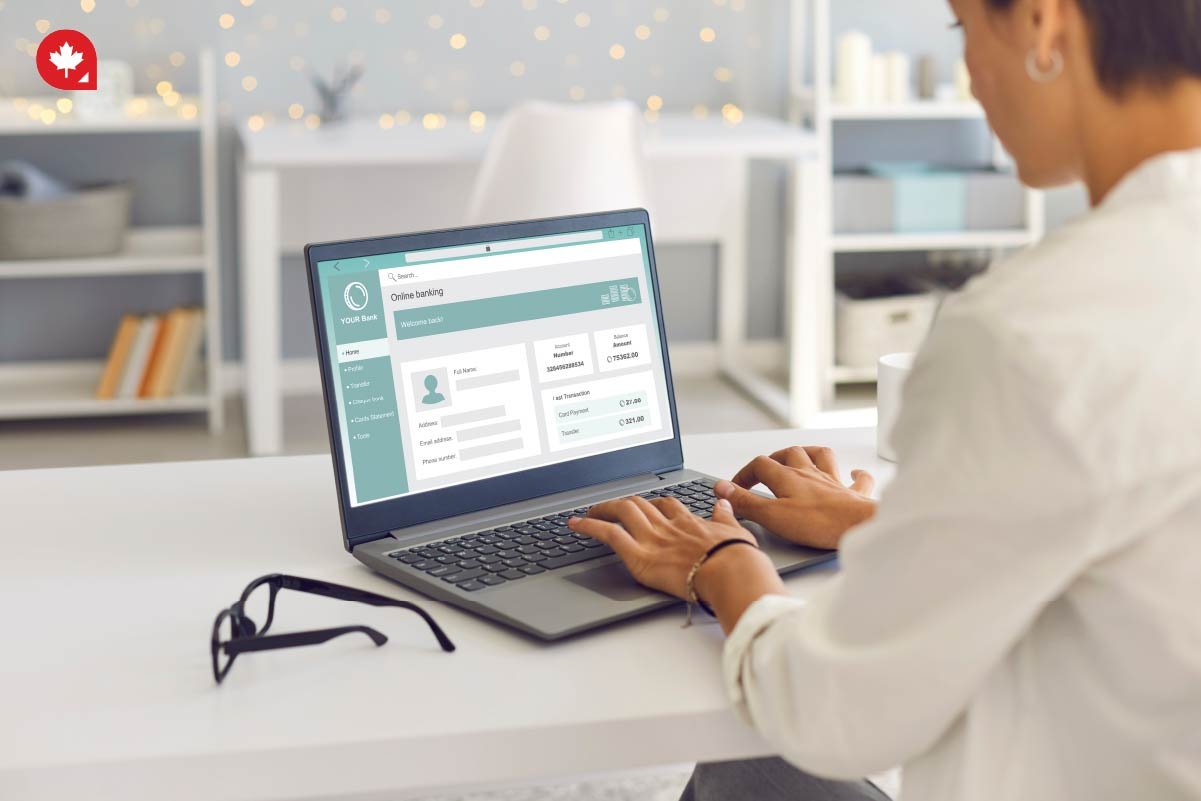Making a new home in a foreign country can be exciting and overwhelming. Whether you're here for work, study, or to start a new life, these essential priorities will help ease your transition as a newcomer to Canada and set you up for success.
From getting the required legal documentation process to understanding Canada's healthcare system and finding suitable accommodation, we've compiled a list of the top 10 things every newcomer to Canada should prioritize. Learn how to prepare for life in Canada as a newcomer, ensuring your smooth transition and successful integration into Canadian society.
What Are The Most Important Things To Do As a Newcomer to Canada

From breathtaking landscapes to a multicultural society, Canada offers a wealth of opportunities. However, settling in Canada without proper preparation can lead to unnecessary anxiety. Below is a breakdown of the ten crucial tasks to prioritize as a newcomer to Canada.
Secure Your Immigration Status in Canada
Ensure you have the appropriate visa or permanent resident status to live and work legally in Canada. Familiarize yourself with the application process and timelines for any extensions or changes required. Resources like Immigration, Refugees, and Citizenship Canada (IRCC) offer valuable information and application forms. Consider seeking professional immigration consultant services if needed.
Learn more about how to get your documents ready for Canadian immigration.
Find a Place to Live in Canada
Research different provinces and cities to find a location that aligns with your lifestyle and budget. Focus on areas with industries related to your skills or qualifications. Research Canadian accommodation options (apartments, houses, condos) based on your needs and budget. Renting can be a good starting point while you explore different neighborhoods.
Cities usually have a higher living cost than smaller towns. However, there are many affordable Canadian cities that provide a comfortable lifestyle. Always evaluate how close you want to be to essential services like schools, healthcare facilities, and grocery stores when choosing a place to live in Canada. Many online resources provide information on rental listings, cost-of-living comparisons, and neighborhood demographics.
Learn how to find your dream home when immigrating to Canada.
Open a Bank Account in Canada
A Canadian bank account is essential for everyday transactions like receiving paychecks, paying rent, and managing bills. Research different banks and compare their services, fees, and special offers for newcomers. Many Canadian banks offer newcomer packages with waived fees or special interest rates.
Be prepared to show proof of identification, your visa or permanent resident status, and your Social Insurance Number (SIN) when opening an account. Most banks offer convenient online and mobile banking options for managing your finances remotely. If you're a student, ask about special accounts with reduced fees or benefits tailored to student needs.
Find out about the top banks in Canada to open a bank account.
Obtain a Social Insurance Number (SIN) in Canada
A Social Insurance Number (SIN) is a unique nine-digit number required to work legally in Canada. You can apply for a SIN card at any Service Canada office after you arrive and have secured your immigration status. The application process is usually straightforward and can be done in person or online. A SIN enables you to access Canada's social benefits, such as
- Employment Insurance (EI),
- Canada Pension Plan (CPP),
- Canada Pension Plan Disability, and
- Old Age Security (OAS).
Learn more about Canada's Social Insurance Number.
Learn How to Gain Access to Canada's Healthcare System
Canada has a universal healthcare system, but there may be waiting periods for non-emergency procedures. Once you establish residency in a province or territory, you can apply for a provincial health insurance card, which grants access to medically necessary services.
Be aware that there might be waiting periods for certain elective surgeries or specialist consultations. Private health insurance can offer additional coverage for these situations, but it's optional. Once you have your health insurance card, you can register with a family doctor (general practitioner) for ongoing care.
Learn more about healthcare in Canada.
Improve Your English or French Language Skills in Canada
Canada is a bilingual country with English and French as official languages. While proficiency is optional everywhere, strong language skills can significantly enhance your job prospects and overall integration into life in Canada. Many government-funded and private language programs are available across Canada. According to EduCanada, there are more than 255 accredited language schools in Canada, including:
- Access International English Language Centre,
- BLI Quebec,
- Centre of English Studies Toronto,
- DEA Canadian College,
- English Encounters,
- ILSC Language Schools – Montreal Français.
Use free online learning platforms and mobile apps to supplement your learning. Engaging in conversation groups with native speakers can boost your confidence and fluency.
Find out how to improve your language skills in Canada with our Canadian IELTS Preparation Course.
Find Out How to Get a Job Offer in Canada
Securing employment is crucial for financial stability and building a life in Canada. Here are some ways to increase your chances of landing a job offer in Canada. Tailor your resume and cover letter to highlight Canadian work experience or relevant skills transferable to the Canadian job market.
Use online job boards like Canada's Job Bank, government employment centers, and professional immigrant networks to find suitable job openings. Attend industry-specific or newcomer networking events to connect with potential employers and build your professional network.
Find out how to get a Job offer in Canada in 3 easy steps.
Get to Know the Canadian Tax System
The Canadian tax system can seem complex at first. Familiarize yourself with different Canadian taxes, deductions (like for moving expenses), and tax filing deadlines. Consider seeking professional help to file your first tax return, especially if you have income outside Canada. The Canada Revenue Agency (CRA) offers valuable information and tax filing guides. Understanding Canadian taxes and tax rates in Canada is important for newcomers to ensure compliance with tax laws and regulations.
Learn more about your first Canadian tax year.
Learn about Canada's Rights And Responsibilities
Canada is a democracy with a rich human rights and social responsibility history. Familiarize yourself with rights and responsibilities in Canada via the Canadian Charter of Rights and Freedoms, a document that outlines fundamental rights and freedoms guaranteed to all Canadians. Newcomers to Canada are not Canadian citizens but only permanent residents.
However, should you apply and receive citizenship, among the rights and responsibilities in Canada you'll be entitled to are voting rights, allowing you to register and vote in Canada's federal, provincial, and local elections. Canadians have a responsibility to pay taxes, obey laws, and respect the rights of others. As newcomers to Canada, understanding these aspects fosters a deeper sense of belonging and civic engagement in your new home.
Learn more about the rights and responsibilities of immigrants in Canada.
Connect With Your Local Canadian Community
Canada is a multicultural society known for its welcoming spirit. Stepping outside your comfort zone and connecting with your local community can enrich your experience. Attend local festivals and cultural events or volunteer at fairs to meet new people and learn about the community. Find clubs or groups based on your interests, hobbies, or cultural background. Volunteering is a great way to give back to the community and connect with like-minded individuals.
How Can I Become a Newcomer to Canada

Canada, with its breathtaking landscapes, multicultural communities, and strong economy, attracts newcomers worldwide. But how exactly do you become one? Here's a roadmap to get you started:
Step 1: Meet the Eligibility Requirements
Each program has specific requirements regarding education, work experience, language proficiency (English or French), and adaptability. Carefully assess your qualifications against Canada's immigration visa program criteria.
Step 2: Choose Your Immigration Path
Canada offers various immigration programs catering to diverse skill sets and backgrounds. Research options like Express Entry for skilled workers, Provincial Nominee Programs tailored to specific provinces, programs for entrepreneurs and business owners, family reunification, or the various immigration pilots.
Step 3: Prepare Your Application
Gather necessary documents like proof of education, work experience letters, language test results, and medical certificates. Research application fees and processing timelines.
Learn more tips to prepare for your Canadian permanent residency application.
Step 4: Secure Your Landing Status
Once your application is approved, you'll receive a Confirmation of Permanent Residence (COPR) document allowing you to land in Canada. This signifies your official status as a newcomer.
Learn more about how to immigrate to Canada.
FAQs

How Can I Prepare for The Canadian Winter?
To prepare for the Canadian winter, newcomers can invest in warm clothing, such as insulated jackets, boots, and gloves, and ensure their homes are properly insulated and equipped with heating systems.
It's also helpful to familiarize yourself with winter safety tips, such as driving in snow and ice, and to stay informed about weather forecasts and warnings. Preparing for Canadian winters also allows you to budget properly for fun winter activities in Canada, play winter sports, and attend its winter festivals.
Learn more about winter in Canada.
How Can Newcomers Prepare for Entrepreneurship in Canada?
Newcomers preparing for entrepreneurship in Canada should research the local business environment, industry regulations, and funding opportunities available. Network with other immigrant entrepreneurs and join business associations, e.g., the Canadian Federation of Agriculture, WBE Canada, Business Council of Canada, etc. It’s also helpful to look for mentorship from other immigrant entrepreneurs who can provide valuable insights and support for starting a business in Canada.
How Important Is it to Research Canadian Climates And Weather Patterns Before Moving?
Researching Canadian climates and weather patterns before moving is essential, as weather conditions vary significantly across the country. Understanding factors such as temperature ranges, precipitation levels, and seasonal changes can help newcomers prepare and adapt to their new environment, whether it's the prairies' snowy winters or the west coast's mild winters.




